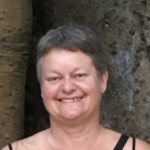Public sex is nothing new in Toronto. But have cops been paying special attention to known cruising grounds this summer?
“In the spring the police started showing up more frequently,” says one regular who spoke on the condition of anonymity. “I’ve seen them five or six times out of 90 visits over six months, which is almost five percent. It could be they were just exchanging notes, but I’ve heard other people talk about seeing people being arrested. I’ve seen them shining lights into the cars with their ticket books out. Something was going on and I knew to leave.”
Public sex can result in charges of trespass to property or being engaged in a prohibited activity, typically for comitting indecent acts. But are police actively seeking out gay cruising areas in order to lay charges in these victimless crimes?
“I have seen people get arrested in the park [Queen’s Park],” says the cruiser. “I didn’t stick around to see it at the [west-end Argonaut] Rowing Club.”
Another regular says police patrols of cruising areas are nothing new, but that what’s changed is that the cruisers who frequent them have become less discreet.
“There’s always been police presence but fags need to get some better bushes because if I can see you getting a blowjob everybody can,” he says.
Const Jackie O’Keefe, Toronto Police liaison officer to the queer community, says there’s been no increase in patrolling of known cruising grounds.
“We don’t go down there unless there are calls of complaints. If a family or several people call, the police will go down and try to keep a lid on it. They’ll hand out tickets every now and then and say, ‘Stop that.'”
“I know of no blitz or initiative aimed at people having sex in public places, whether they be straight or gay,” says Staff Sgt Blake Shreve of 11 Division. “I’ve been on the job over 30 years. We’ve got a lot of higher priority things to deal with and we’re complaint-driven. If a law’s being broken certainly we have to enforce it. The only other time it would come to our attention is if we drove into it.”
Shreve says policing consensual sex isn’t a priority. “We’re concerned with unwanted sexual assaults. Most of the concern seems to be around children, such as in a park where two people are having sex. At nighttime in a park where there’s no children or anybody to be offended then it’s kind of a private setting.”
A third longtime cruiser says even when cops come through they don’t usually lay charges.
“I lived in High Park for 12 years so I frequented it for 12 years. Honestly, I saw cops maybe two dozen times. It wasn’t that they were putting a kibosh on the guys; they were just travelling through on their beat. If there were a whole lot of guys… they’d shine the big light as a scare tactic.”
The west-end regular adds that park cruising appeals primarily to guys who are closeted.
“It gives a place for straight guys and gay guys who are living in a straight world in the ‘burbs a place to go. But the cops have to protect the balance. The washrooms, the ones that are open, if a father and child were to walk in there it would be horrific. You have all these guys lined up at the urinal masturbating.”
Hanlan’s Point is another classic cruising site. Marine Unit inspector Tony Crawford, formerly of 52 Division, says he’s familiar with the public cruising phenomenon.
“If it happens among consenting adults and not in the view of young children we don’t go looking in the bushes,” says Crawford. “But we don’t want inappropriate behaviour that’s offensive to those enjoying the park. Make sure you are respectful of the rights of all citizens who use that facility. Complaints that cause me concern are people exposing themselves to children.
“We’re there to ensure that people who are bathing with or without clothing have the piece and quiet to do so without being disturbed and we’re there to make sure that both sides are addressed.”
Nude sunbathing was approved at Hanlan’s Point in 1999, but cops have been known to ticket individuals straying beyond the clothing-optional section of beach.
“There’s a designated area of 1,500 linear feet of shoreline with clearly marked areas under the by-laws where people can be clothing optional,” says Crawford. “People choose to leave the marked areas and that?s where problems arise.”
Crawford says police are responding to complaints.
“The majority of complaints are about people who are nude in areas where they’re not supposed to be, made by people with their children and family,” says Crawford. “They want the police to take some action. The problem exists at any time when people choose to leave the designated area and it is offensive to people who are surprised by it. Then we lay charges for nude bathing, for alcohol or disorderly conduct.”


 Why you can trust Xtra
Why you can trust Xtra


